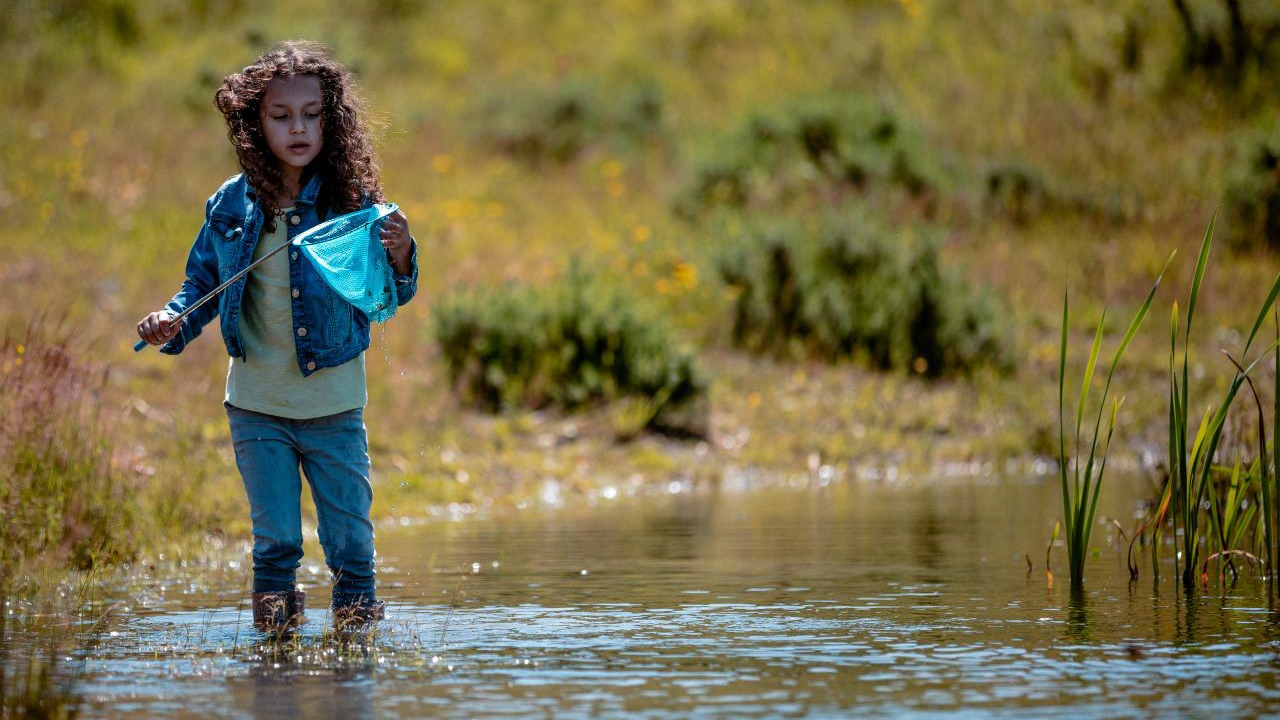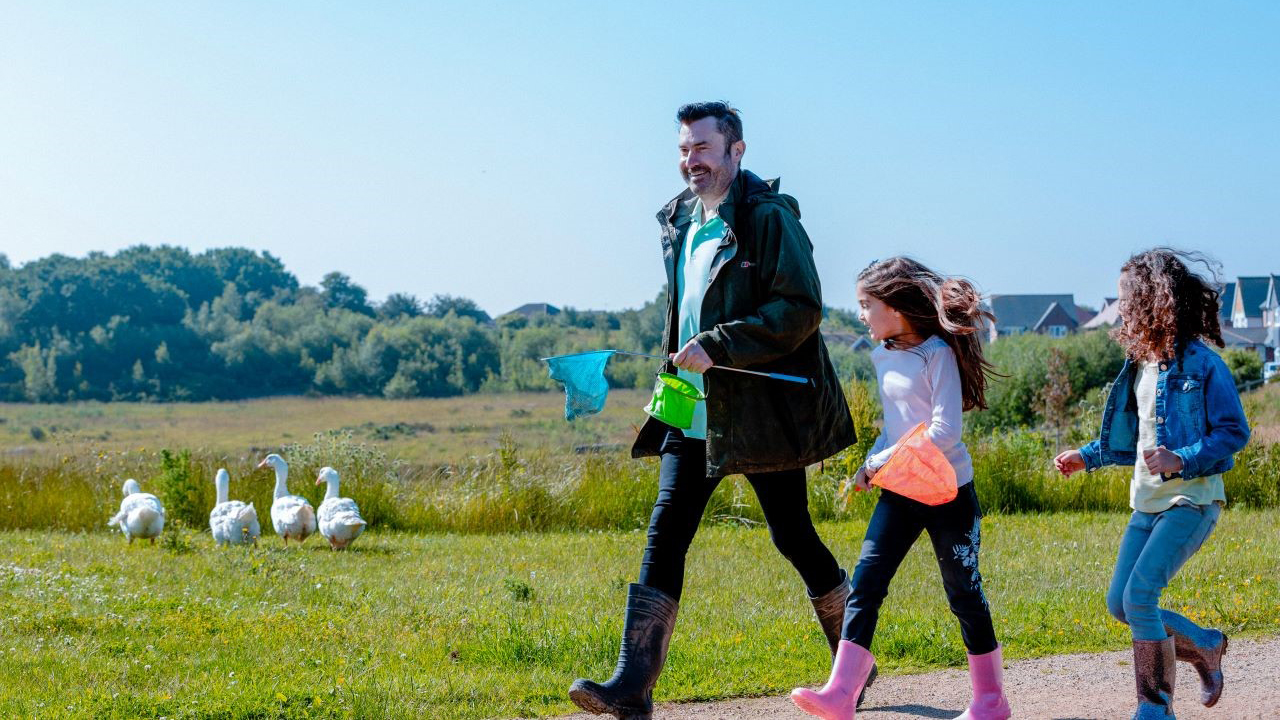Pond dipping involves exploring local ponds and wetlands, using a net and bucket to capture and study insects, fish, frogs, newts and other pond life, before returning them unharmed to the water. With an estimated 500,000 ponds throughout the UK, it shouldn’t be too hard to find somewhere to start dipping.
The art of pond dipping
Pond dipping is a great way of getting kids excited about their surrounding natural environment, while creating a game that involves ‘collecting’ each creature in the way of a survey or photographs. All you’ll need is a flat net and a bucket to put any catches in. White is the best colour, as it’ll make it easier to see smaller creatures. It’s worth pulling on some wellies and taking along a towel too. Ponds can get muddy and cold hands will quickly take the fun away, especially for younger children.
Another good tip for pond dipping is to create a checklist before you head out. This allows children to write down or cross off any creatures they see and start to build a collection of those that live in the pond. If you aren’t quite an expert biologist just yet, then a pond life handbook or even a quick Google may shed some light, which is all part of the fun. You may want to take a camera too, so any exciting finds can be documented and re-visited at a later date.

Once you’ve filled your bucket with some of the pond water (keep an eye out for any instant catches), give the net a good wave around just below the surface. Remind children that they shouldn’t be too vigorous, as swatting the net into the water or moving too quickly could scare off or hurt certain creatures. It may take a few attempts before anything makes its way into the net, but once you see any movement, just lift the net into the bucket and gently swish it around. This should dislodge any catches and allow children to peer at them.
As you collect more creatures, move the net deeper until you reach the mud. You may encounter bigger and more exciting animals that live at the bottom of the pond!
Safety tip: No matter how shallow the pond is, always take precautions to prevent both yourself and your children from falling in the water. Get everyone to lie flat on their stomach or kneel at a minimum of 60cm from the water’s edge to prevent losing balance. Consider holding smaller children as they use the net.
Make learning fun
An important part of wetland conservation is the monitoring and measurement of pond health. Teaching children about surveying ponds regularly and checking on creature numbers is a great way to get them interested in the impact of the wider world on something as simple as a pond. From water pollution, to imbalances between predators and prey, keeping records and going back to ponds regularly can not only get children interested in conservation, but it could even help certain organisations who keep an eye on Britain’s natural environments.
Volunteer organisations like the Wildfowl and Wetlands Trust and the Freshwater Habitats Trust carry out their own surveys all over the country, so your pond dipping results could be of interest. Check websites or drop an email to a local representative if you can find one. Even if the area is already being looked after, it’s a great way to get kids involved with good causes and show them the rewards of volunteering.

What Redrow do for the environment
One of the biggest benefits of buying a family home with Redrow is the fact that we go above and beyond when it comes to preserving the environment where our new homes are built. Unlike other housebuilders, who may try to maximise the number of properties that can be built by using every square inch of land, Redrow focus on retaining existing landmarks and areas that offer an important refuge for all types of wildlife. Buying with Redrow means you’ll only ever be a short walk from ponds, fields or green areas. Not only is this important for giving children places to play and explore, it also teaches them why it’s important to care about the environment around us.
Find your next family home with easy access to ponds, wild areas and places for your family to learn and grow.



